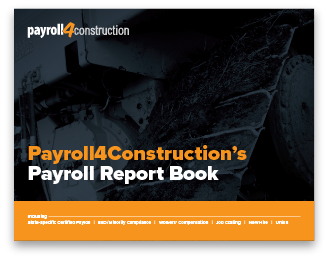Washington D.C. Prevailing Wage Laws: A Complete Guide for Contractors
Overview of Washington D.C. Prevailing Wage Requirements
Washington D.C.'s prevailing wage requirements are primarily governed by federal Davis-Bacon Act provisions on federally-funded construction projects, ensuring contractors and subcontractors pay standardized wages that reflect local labor market rates for similar work in the District of Columbia area. These requirements involve detailed documentation through the WH-347 Form, which serves as the standard certified payroll reporting format for Davis-Bacon compliance.
For any construction company working on prevailing wage projects in the nation's capital, Payroll4Construction is here. As a complete payroll service, Payroll4Construction is built to keep contractors compliant with certified payroll reporting and prevailing wage rate determinations. Our expertise with the WH-347 Form ensures accurate submission of weekly certified payroll reports that meet federal documentation standards.
Keep reading to learn more about Washington D.C.'s prevailing wage laws and how we can help you.
What is Prevailing Wage in Washington D.C.?
Washington D.C. requires contractors and subcontractors in the construction industry to pay prevailing wages on public works projects when they receive federal funding or meet specific District requirements. This includes:
- Federal construction contracts exceeding $2,000 (Davis-Bacon Act)
- District of Columbia public works projects as specified in contract documents
- Projects receiving federal funding regardless of the contracting agency
Under these requirements, construction workers must receive minimum hourly wages and fringe benefits based on local standards for similar work within the Washington D.C. metropolitan area as determined by the U.S. Department of Labor for federal projects.
Don’t Let Prevailing Wage Compliance
Slow Down Your BusinessPrevailing Wage Rate Determination
Setting Initial Rates
The U.S. Department of Labor's Wage and Hour Division has several crucial responsibilities related to establishing and maintaining prevailing wage rates for the Washington D.C. area. These ensure fairness throughout the contracting process.
The Department of Labor must:
- Determine appropriate prevailing wages, including hourly rates and benefit rates for the D.C. metropolitan area
- Publish these rates for use in federal public works projects
- Include these rates in all applicable project specifications and contracts
- Update rates periodically to reflect current local labor market conditions
Rate Calculation Method
The Department of Labor follows a structured approach to determine fair and accurate compensation rates for the Washington D.C. market. They establish rates by analyzing:
- Collective bargaining agreements in the D.C. metropolitan area
- Actual wages paid on similar construction projects in the region
- Various sources of wage information for the geographic area
- Input from public hearings and industry surveys when necessary
Prevailing Wage Requirements
Prevailing wage laws establish minimum compensation standards for workers on covered public projects. These requirements ensure fair labor practices and create a level playing field for all contractors bidding on government work in the District.
- Contractor

Prevailing wage laws establish minimum compensation standards for workers on covered public projects. These requirements ensure fair labor practices and create a level playing field for all contractors bidding on government work in the District.
- Understanding which wage determination applies to their specific project
- Ensuring compliance with Davis-Bacon Act requirements on federal projects
- Including appropriate wage determinations with all bids
- Ensuring all subcontractors hired for the project understand prevailing wage obligations
- Paying prevailing wages to all covered workers
How to Submit Prevailing Wage Proof
Washington D.C. prevailing wage projects require contractors and subcontractors to maintain comprehensive payroll documentation and submit certified payroll reports to demonstrate compliance with wage requirements.
This documentation process involves detailed record-keeping of all compensation provided to workers, ensuring transparency and accountability.
Information needed for certified payroll reporting includes:

- Worker names and addresses
- Job classifications for work performed
- Hours worked per day and week
- Hourly wage rates paid
- Gross wages earned
- Deductions taken from pay
- Net wages paid
- Fringe benefits provided or cash payments made in lieu of benefits
In essence, contractors need accurate certified payroll records and evidence of proper wage payments throughout the project duration. Federal Davis-Bacon Act requirements mandate contractors to certify that they:
- Have paid prevailing wages to all covered workers
- Properly classified workers according to their actual duties performed
- Provided required fringe benefits or equivalent cash payments
- Maintained accurate payroll records available for inspection
This documentation must be maintained throughout the project and available for federal compliance reviews.
Prevailing Wage Compliance, Enforcement and Consequences
The Washington D.C. prevailing wage system relies on robust federal compliance mechanisms and meaningful penalties to ensure all parties adhere to established standards. These measures protect workers' rights, ensuring compliance with wage standards while maintaining the integrity of public projects.
Wage Payment Rules
Prevailing wage laws establish minimum compensation requirements that cannot be circumvented. This ensures workers receive fair pay for their labor on covered public projects in the District.
The rules surrounding wage payment include:
- Workers must receive prevailing rates for their job classification as determined for the D.C. area
- Rates include both basic hourly wages and fringe benefits
- Rates are typically based on area wage surveys and collective bargaining agreements
- Employers cannot pay below these rates, even with worker consent
- Certified payroll records must be submitted weekly when required
Violation Consequences
Significant operational and financial repercussions await contractors who fail to comply with prevailing wage requirements, potentially jeopardizing their ability to work on federal projects.
Construction businesses are at risk of penalties, including:
- Administrative action by the U.S. Department of Labor
- Debarment from federal contracts for up to three years
- Assessment of back wages owed to workers plus interest
- Contract termination for substantial violations
- Withholding of contract payments until violations are resolved
- Potential removal from approved bidder lists
Prevailing Wage Whistleblower Protections
Federal law includes anti-retaliation provisions specifically designed to protect workers who report violations of prevailing wage requirements or certified payroll discrepancies on covered projects.
Employees are protected from retaliation when reporting prevailing wage violations:
- Protection from termination
- Protection from disciplinary action
- Protection from discrimination
- Protection from threats or intimidation
These protections apply specifically to matters involving prevailing wage compliance on federal projects. They allow workers to safely report underpayment, misclassification, or certified payroll record falsification without fear of employer retaliation.
Penalties
The legal framework includes substantial financial penalties and establishes clear liability structures to encourage compliance with federal prevailing wage requirements.
Financial consequences include:
- Administrative penalties and contract sanctions
- Payment of back wages plus liquidated damages
- Joint liability between contractors and subcontractors
- Potential criminal referral for willful violations
- Suspension from federal contracting opportunities
How Payroll4Construction Helps You Stay Compliant
Payroll4Construction is a construction payroll service that specializes in helping contractors and construction companies navigate the complex wage regulations of the Davis-Bacon Act and federal prevailing wage requirements.
These time-saving services reduce administrative hours spent on complex wage calculations and paperwork. In turn, this gives the team peace of mind knowing that prevailing wage obligations are being handled correctly for Washington D.C. area projects.
Prevailing Wage Coverage and Thresholds
Most federally-funded construction projects in Washington D.C. must adhere to Davis-Bacon Act prevailing wage requirements. However, coverage depends on specific project characteristics and funding sources.
These requirements don't apply to all construction work. Instead, they focus on publicly-funded projects that meet federal criteria for prevailing wage coverage.
Projects are typically subject to prevailing wage requirements if they:
Meet federal contracting thresholds:
- Construction contracts exceeding $2,000 with federal agencies
- Projects receiving federal funding through various grant programs
- Public works construction financed with federal dollars
Fall under specific federal programs that mandate prevailing wage compliance:
- Davis-Bacon Act coverage for federal construction
- Related Acts that extend Davis-Bacon requirements to various federal assistance programs
- HUD-funded housing projects
- Transportation projects receiving federal highway funds
Are specifically designated in contract documents as prevailing wage projects
In all cases, contractors remain responsible for understanding which wage standards apply to their specific projects. When in doubt, following prevailing wage requirements ensures compliance with all applicable federal regulations.



